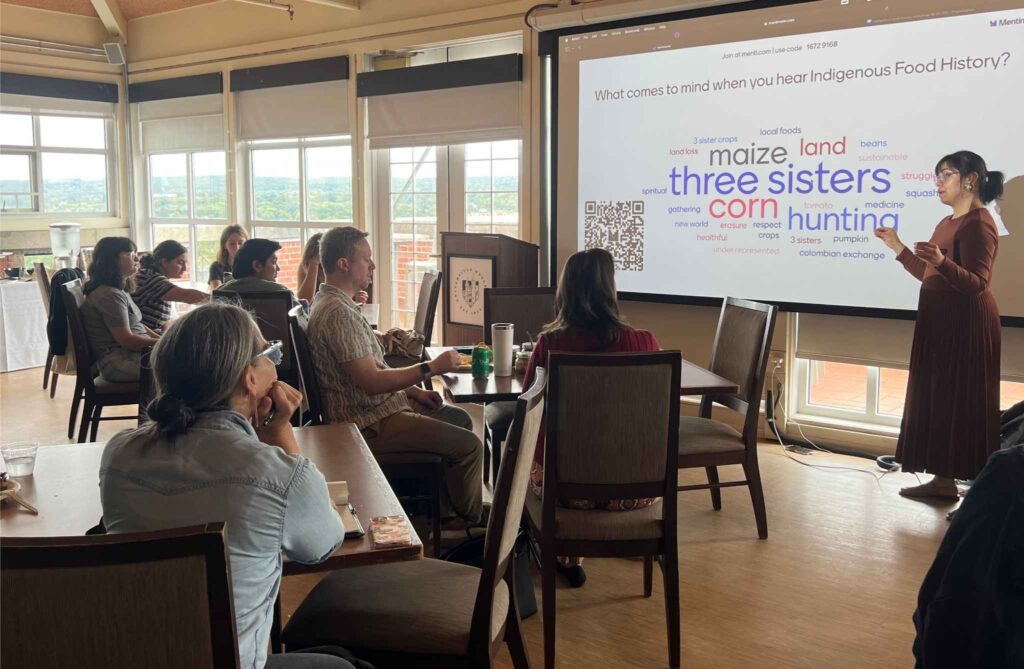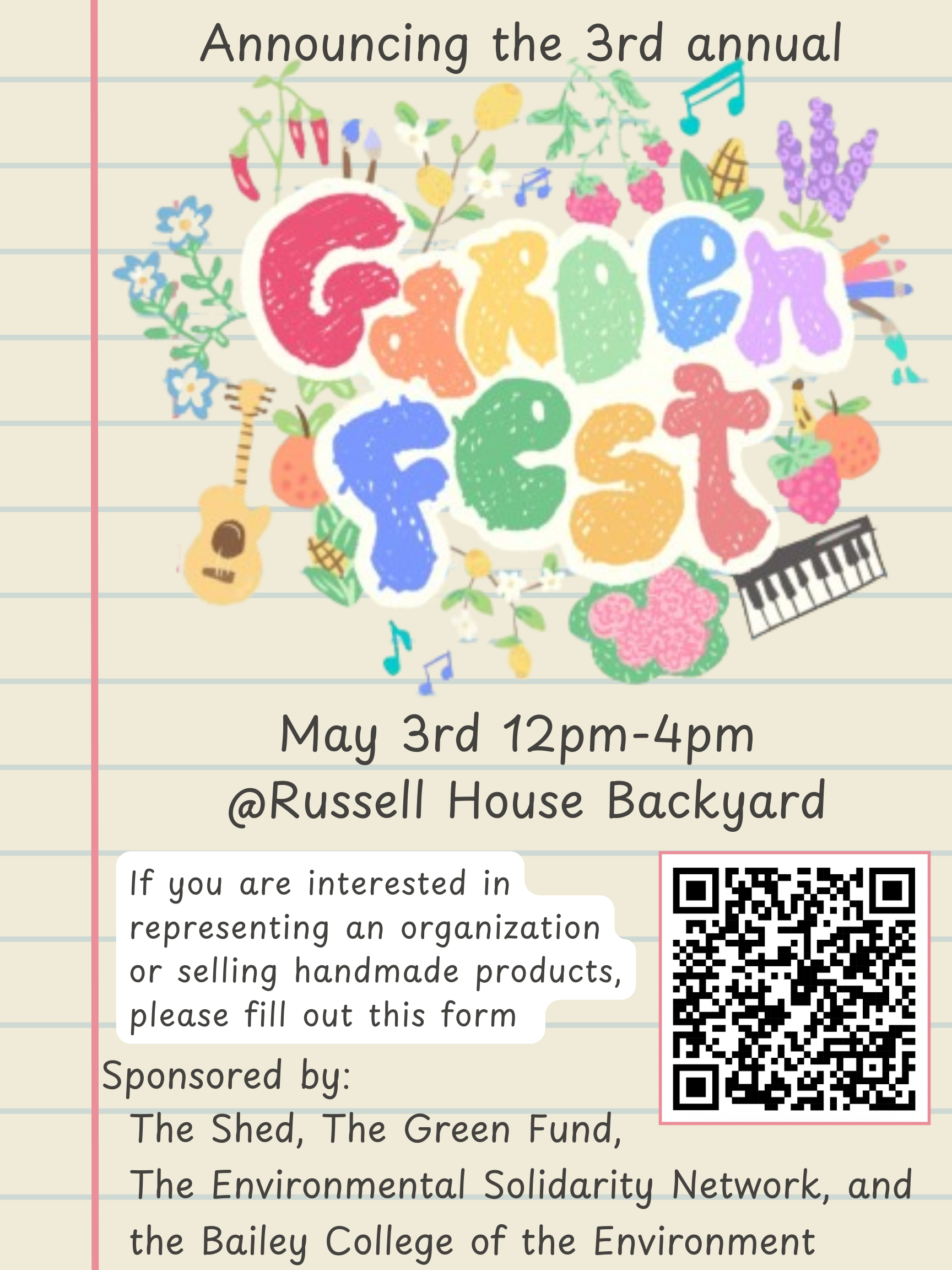By Ikimot Siyanbola
Note* The terms Native American and Indigenous are used interchangeably in this blog, but it’s important to know that Indigenous is an umbrella term that not all Native Americans may accept.
On September 22nd, Rooted Solidarity was honored to welcome Xochitl Garcia to Wesleyan to deliver a workshop about Indigenous food history. The workshop primarily focused on how Indigenous food history has been hidden, obscuring the crucial contributions of Native people to our food system. Participants included community members, as well as Wesleyan students, faculty and staff. Attendees learned through doing, as the workshop consisted of playing trivia to test our knowledge.






